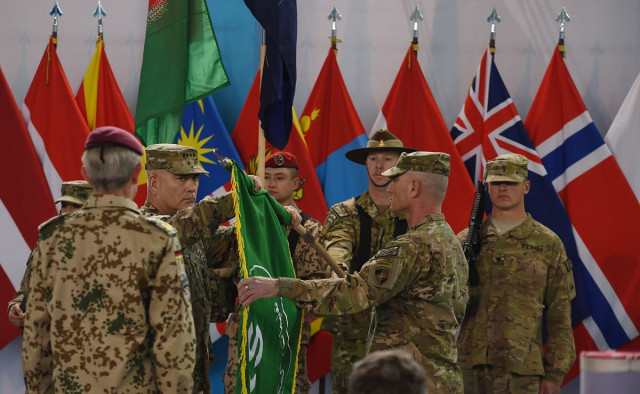The end of the War in Afghanistan?
What the Americans and others were fighting was a set of ideas and ideals, neither of which has been much affected

The war in Afghanistan was the longest that America has ever fought, Cold War excluded. At the beginning, it all looked so easy. American and other coalition forces were quickly in Kabul and the Taliban simply melted away, went back to whatever they were doing before they were created by an unholy alliance of intelligence agencies — and waited their chance. The Taliban, inasmuch as they exist as a homogenous entity, were never defeated militarily and they remain undefeated to this day. What the Americans and others were fighting was a set of ideas and ideals, neither of which has been much affected by bombs, bullets or the battle for hearts and minds. With the Americans gone, the line is held by the Afghan National Army, a force that has proved to be less than intrepid in taking the fight to the enemy, has little or no air cover and is widely believed to be infiltrated by Taliban sympathisers. The prospect of it being overwhelmed as was the Iraqi Army in a scenario that has chilling parallels, has to be considered. It may succeed where others have failed and we hope against hope that it does.
With the military futures uncertain, there is at least a brighter political horizon, but as with the shooting war, the war to reform a land where democracy had never sunk deep roots, still has an uncertain outcome. The president who followed on the heels of the toppling of the Taliban government was an American proxy, and remained so for much of his long and troubled tenure. He was derided as ‘The Mayor of Kabul’, rarely left his palace and in his final years had a bitter relationship with his erstwhile masters who in the end were relieved to see him leave. Yet, from the wreckage of the Karzai regime, there has emerged a political solution that is undoubtedly Afghan, was arrived at by more-or-less democratic means, and in a very short time has begun to respond to the needs of the nation as well as doing some urgent fence-repairs with the neighbours.
The American intervention may have blunted al Qaeda, but it spawned franchises elsewhere, most notably the Arabian Peninsula and has anyway been overtaken in terms of perceived threat by the IS, the real game-changer of 2014. The Taliban are already back in power in parts of southeast Afghanistan, but may find themselves sandwiched militarily if the newly rebooted relationship between Afghanistan and Pakistan gathers heft and traction. Other imponderables are around the durability of the latest iteration of the democratic process — how strong as an institution is the Afghan parliament? And what of women in a country where until recently, they had been the invisible half of the population? There have been gains for women to be sure, but they are largely limited to the large urban areas. Women are resented by many who see their emerging roles as a threat to traditional culture — and Afghanistan is nothing if not traditional. America mistakenly thought it had won a war in 2001, but signed up for a 13-year lesson in not believing everything you tell yourself. And the future? Clouded.
Published in The Express Tribune, December 30th, 2014.
Like Opinion & Editorial on Facebook, follow @ETOpEd on Twitter to receive all updates on all our daily pieces.



















COMMENTS
Comments are moderated and generally will be posted if they are on-topic and not abusive.
For more information, please see our Comments FAQ